Selling a business is an exciting yet daunting process.
Engaging in the sale of a business requires careful planning and research, as well as an understanding of the local laws and regulations. Fortunately, there are professionals who specialize in helping business owners make a smooth transition when selling their companies. One such professional is the business broker—an experienced individual or company that can help you through the entire process of selling your business.
They bring a wealth of market insights, negotiation skills, and transaction expertise, making them invaluable allies in maximizing the value of your business sale. With their guidance, you can navigate the complexities of due diligence, legal requirements, and strategic positioning, ensuring a successful and profitable outcome.
Key phases to sell a business with a business broker.
Selling a business with a business broker involves several key phases to ensure a successful transaction.
Navigating these phases requires a strategic mindset, clear communication, and a deep understanding of the market dynamics.
By partnering with a skilled business broker, you gain a trusted advisor who not only leads you through each stage but also provides insights that can enhance the value and appeal of your business to potential buyers.
With their guidance, you can confidently navigate the complexities of selling your business while aiming for the best possible outcome.
Here’s an overview of these phases to sell a business with a business broker.
Preparation and Valuation: The process begins with assessing your business’s current financials, operations, and market position. The business broker will collaborate with you to determine an accurate valuation based on tangible and intangible assets.
Engaging a Business Broker: Choose a reputable business broker with a proven track record in your industry. This professional will become your partner in guiding you through the sales process.
Marketing Strategy: The broker will develop a tailored marketing plan to showcase your business’s strengths and attract potential buyers. This could involve creating detailed marketing materials and identifying target audiences.
Finding Qualified Buyers: The broker’s network and resources enable them to identify and qualify serious buyers. They’ll ensure confidentiality and pre-screen potential buyers to save you time and protect your business’s sensitive information.
Negotiation and Offers: Once potential buyers express interest, the broker will manage negotiations, helping you receive the best possible offers. They’ll also assist in structuring deals that align with your goals.
Due Diligence: Buyers will conduct due diligence to thoroughly examine your business’s operations, finances, and legal status. The broker assists in providing necessary information to satisfy buyer inquiries.
Closing the Deal: When terms are agreed upon, the broker guides both parties through the contract and closing process. This phase includes finalizing legal and financial details and ensuring a smooth transfer of ownership.
Transition Support: Even after the sale is complete, a good broker may offer post-sale transition support, helping both you and the buyer navigate any challenges during the ownership transfer.

